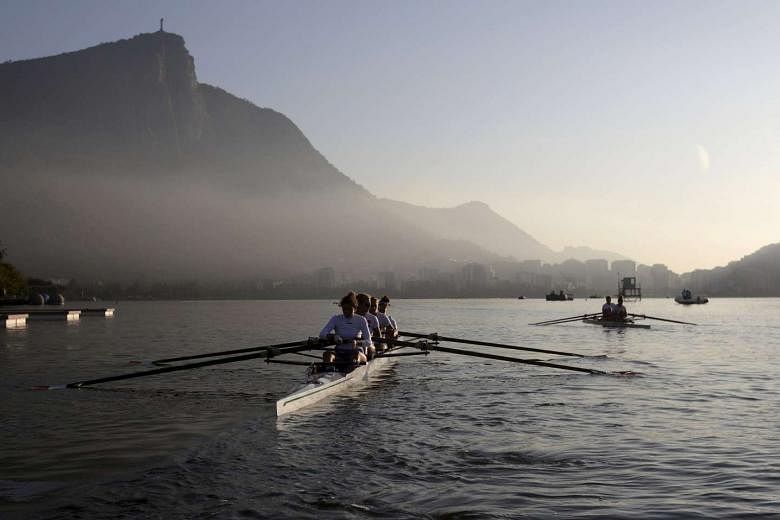RIO DE JANEIRO (AFP) - Pollution in the Olympic rowing lagoon in Rio de Janeiro was not responsible for illness among US athletes at an Olympic warm-up last weekend, Brazilian organisers said Tuesday.
"There is absolutely no evidence to link the water quality and the illnesses," Philip Wilkinson, a spokesman for the Rio2016 organizing committee, said.
USRowing said four coaches and 11 athletes from an approximately 70-strong US team got ill during the weekend's world junior championships, which were held as a test event ahead of the Summer Games in 12 months.
The lagoon has previously been criticised over its pollution levels, but Olympic organisers say the waters were clean enough for the competition, while USRowing also said it had no proof that the lagoon, located in the heart of the city, was to blame.
"It would be easy but irresponsible for us to immediately assume that the rowing course is the main or sole point of exposure that caused the illnesses," Glenn Merry, the CEO of USRowing, said in an email.
"While we are aware that the lake is polluted, we are not jumping to the immediate conclusion that the illness was a result of the lake pollution for two reasons," he said.
The controversy blew up after a US media report quoted the US team doctor saying she suspected the lake might be to blame.
But Merry said the first team member to feel sick was a coach "who did not row on the lake." Meanwhile, a female single sculler who capsized and even "consumed some amount of lake water... had not yet shown any symptoms of illness," Merry said.
The US rowing body underlined that team members also got sick during other foreign trips. "Recently in Italy our senior team had six athletes become ill out of 25," it said.
Tarik Jasarevic, a spokesman for the World Health Organisation, said tests in the lagoon have shown "potential health risks based on the fluctuation of E.coli contamination." However, the risk was considered to be acceptable.
"Athletes will not have significantly increased health risk" if they kept contact with the water to a minimum, Jasarevic said in an email. This would mean avoiding "ingestion of water by rowers".
"Risks would increase if athletes were to fall in the water, with ingestion of water," he said.
Wilkinson said "we're testing twice a week and according to international standards."
During test events, testing increases to every two days.
At the junior championships three Dutch competitors jumped in to celebrate "and they are fine," he noted.
Pollution worries have also been raised over the state of Guanabara Bay, the sheltered water outside Rio where the Olympic sailing and windsurfing events will take place.
However, Brazilian officials insist that testing will reassure the athletes that it is safe.

